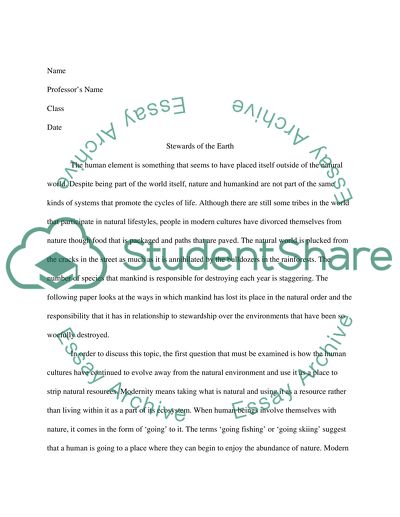Cite this document
(“Human relationship and responsibility to the natural world Essay”, n.d.)
Human relationship and responsibility to the natural world Essay. Retrieved from https://studentshare.org/environmental-studies/1484569-human-relationship-and-responsibility-to-the-natural-world
Human relationship and responsibility to the natural world Essay. Retrieved from https://studentshare.org/environmental-studies/1484569-human-relationship-and-responsibility-to-the-natural-world
(Human Relationship and Responsibility to the Natural World Essay)
Human Relationship and Responsibility to the Natural World Essay. https://studentshare.org/environmental-studies/1484569-human-relationship-and-responsibility-to-the-natural-world.
Human Relationship and Responsibility to the Natural World Essay. https://studentshare.org/environmental-studies/1484569-human-relationship-and-responsibility-to-the-natural-world.
“Human Relationship and Responsibility to the Natural World Essay”, n.d. https://studentshare.org/environmental-studies/1484569-human-relationship-and-responsibility-to-the-natural-world.


